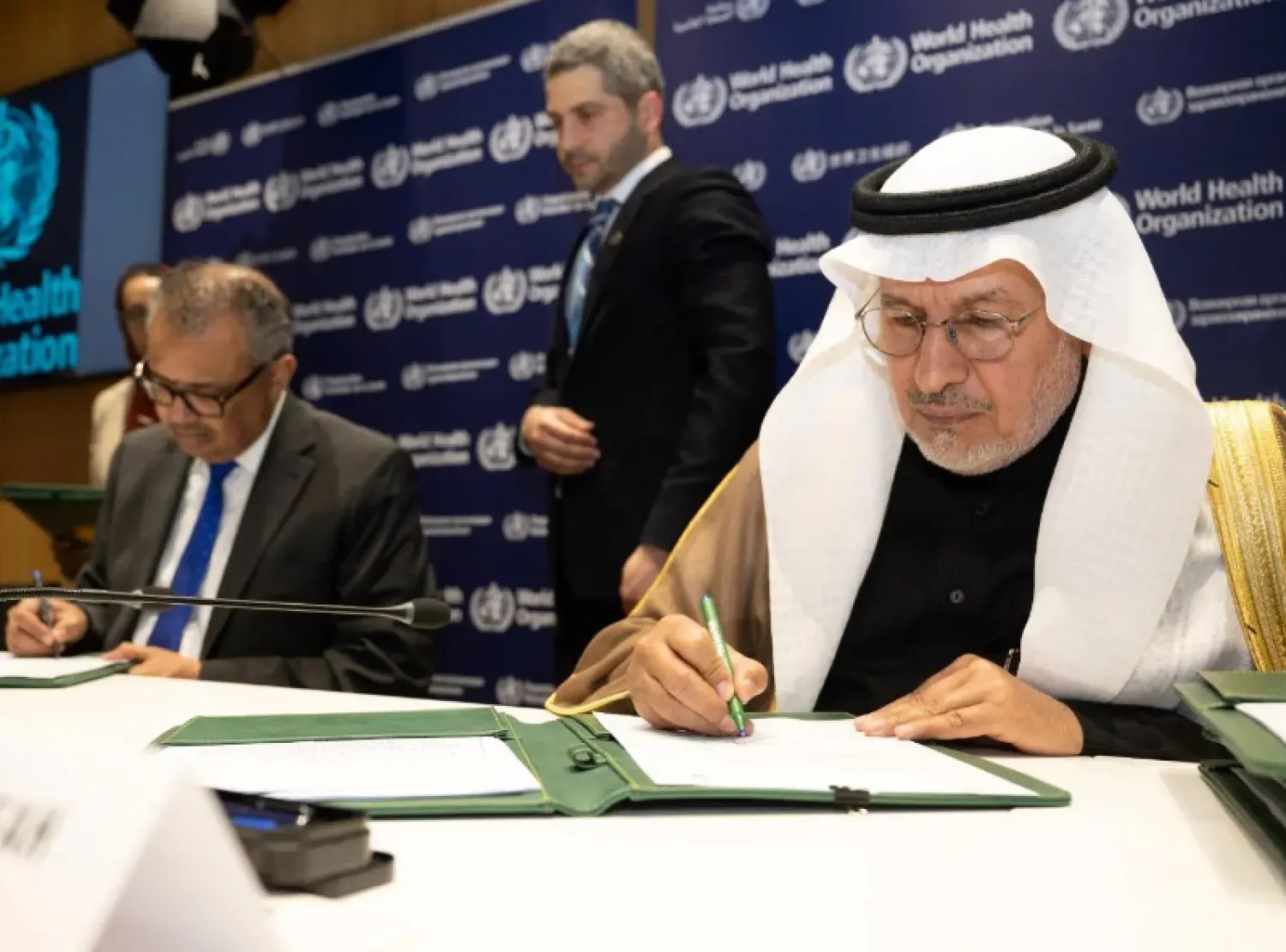The King Salman Humanitarian Aid and Relief Center (KSrelief) signed five executive programs with the World Health Organization (WHO) for Yemen, Sudan, and Syria, with a total value of $19,496,000.
The agreements were signed on the sidelines of the 77th session of the World Health Assembly in Geneva, SPA reported.
The first agreement aims to address the severe shortage of kidney dialysis supplies in Sudan to reduce mortality among kidney failure patients across various Sudanese states by providing dialysis supplies sufficient for some 235,000 dialysis sessions, securing 100 dialysis machines, and paying the salaries of medical staff in 77 dialysis centers, with a value of $5 million.
The second agreement entails providing medical assistance to earthquake victims in Syria, with a total cost of $4,746,000.
The third agreement focuses on combating the spread of measles among children under five in Yemen, with a total cost of $3 million.
The fourth agreement aims to improve water and sanitation services in healthcare facilities, ensuring sustainable water supplies to serve the neediest populations in Yemen, valued at $3,750,000. The agreement includes drilling solar-powered wells in 10 healthcare facilities.
The fifth agreement aims to reduce the spread of cholera across Yemen, with a value of $3 million.
These agreements are part of the humanitarian and relief efforts provided by the Kingdom of Saudi Arabia, through KSrelief, to support the health sectors in needy countries, enhance their capabilities, and provide them with essential medical needs.









